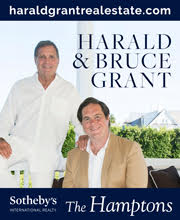Categories
Left column house ads
David Bouley, a chef who made Tribeca and who made Tribeca his home, dies at 70
February 14, 2024 People, Restaurant/Bar News
David Bouley, whose work here as a chef, business owner and resident made Tribeca a destination for fine dining starting four decades ago, has died at 70. His death, from a heart attack, was confirmed by his wife, Tribecan Nicole Bartelme.
His career here included eight restaurants and two retail operations — all of which were lauded by James Beard, Michelin and The Times — as well as a test kitchen and event space. And he was still inventing new ways to think about and serve spectacular meals.
“David was a man who holistically experienced discovery,” Nicole said in an email this morning. “Relentless curiosity and questioning was his driving force – to be informed, to share and celebrate. He embraced a spirit and commitment to sharing the gifts of mother nature and the purity offered though technique, ingredients — to meet his clients where they were and instill new experiences embodies his passion.”
Bouley was 32 when he came to New York to be the chef at Montrachet, Drew Nieporent’s first (of many) restaurants here. It opened in April 1985 and had three stars from The Times seven weeks later. The review called his repertoire “diverse, personal and well-conceived,” sure to draw diners to this “up-and-coming part of town.” They were not wrong on either account, time would prove.
“Bouley cooked like an angel — amazing, like amazing,” Drew said when we spoke about the recent closing of Bâtard in that same space on West Broadway and N. Moore. (That’s Bouley in the chef’s hat, above, and Drew on the top right.) “At the time, here in the States, we were doing old fashioned food at the three-star level, and Europe was doing nouvelle cuisine. Bouley was able to extract these original dishes from that tradition. Amazing.”
His career shaped modern American fine dining in the broadest sense, but his impact was also local: for Tribeca and its development as a neighborhood, it cannot be overestimated. In addition to the remarkable list of restaurants and businesses below, he also helped fundraise for the Duane Park restoration project; cooked for local benefits, including one for Tribeca historian Oliver Allen; and for years supported events at Tribeca Hebrew with his talents.
David Bouley was born and raised near Storrs, Connecticut, close to his French grandparents’ farm, where he developed an appreciation for cooking from fresh ingredients. He worked in restaurants from an early age, spending time in Cape Cod, Sante Fe, and eventually France and Switzerland. After studying at the Sorbonne, he worked with some of Europe’s most acclaimed chefs, including Roger Vergé, Paul Bocuse and Joel Robuchon, returning to New York to work at Le Cirque, Le Périgord and La Côte Basque. He was working for Vergé at Sutter 500 as the sous-chef when he met Drew, who brought him back to New York for Montrachet.
In 1987, Bouley opened his namesake restaurant at 165 Duane, the northwest corner with Hudson; it would eventually move to 163 Duane, on the east side of the park; it closed in that same location in 2017. The restaurant earned four stars from The Times as well as James Beard Foundation awards for Best Restaurant and Best Chef. From 1991 through 1996, Bouley received the number one ranking in both food and popularity in the Zagat Survey of New York City restaurants and was the first restaurant in the guide to achieve a rating of 29 out of a possible 30.
In 1999, he opened Bouley Bakery and Market on the corner of West Broadway and Duane, now the Citibank branch — earning four stars from The Times as well as two Michelin stars. The bakery became a neighborhood hot spot, serving 5000 guests daily and offering bread, pastries, meat, fish and more than 50 hot items created on premises. It closed in 2010. In November 2008, he opened on the northwest corner of Duane and West Broadway, where he had Bouley Studio on the ground floor and Bouley Upstairs a flight up. (My friends and I still talk about the night we watched David cook our steaks in the open kitchen upstairs, frying them to perfection in a sizzling brick of butter just feet from our table.)
Meanwhile, yet another restaurant, Danube, at 30 Hudson, also received two Michelin stars. That evolved into Brushstroke in 2011, which, in collaboration with the Tsuji Culinary Institute, was awarded a Michelin star in its first year and was listed in GQ’s list of the 10 best restaurants in America. When famed sushi chef Eiji Ichimura joined Brushstroke in 2012, his sushi counter within the restaurant garnered two Michelin stars. Ichimura now has his eponymous restaurant on Greenwich. Brushstroke closed in 2018.
 In 2017, David created Bouley at Home and Bouley Test Kitchen in the Flatiron. By then he had also purchased 17 Harrison with the hope of opening a private dining space there, scheduled to be Bouley at Home Living Pantry. The test kitchen space provided guests an open arena to learn the chef’s principals and practice of “building blocks,” gut health, functional medicine and bioavailability. The two businesses closed with the pandemic. (His book with the same title — Bouley at Home Living Pantry — was scheduled to be released this year by Flatiron Press.)
In 2017, David created Bouley at Home and Bouley Test Kitchen in the Flatiron. By then he had also purchased 17 Harrison with the hope of opening a private dining space there, scheduled to be Bouley at Home Living Pantry. The test kitchen space provided guests an open arena to learn the chef’s principals and practice of “building blocks,” gut health, functional medicine and bioavailability. The two businesses closed with the pandemic. (His book with the same title — Bouley at Home Living Pantry — was scheduled to be released this year by Flatiron Press.)
And in 2014 he transformed another classic Tribeca space, creating Bouley Botanical — an event space decorated with greenery that made the entire space glow from within — at Church and White. (It closed in 2018.) Erik Torkells first visited for an event with his husband’s company, and it reminded him of Upstairs at Bouley: “the open kitchen (and accompanying buzz), the stage lights and screen, the panoply of Bouley breads, David Bouley himself arriving to help out. As the party was breaking down, I glanced at the door right as someone was leaving. He waved, so I waved back before asking around who it was. “Chef Bouley,” said the waiter, as the man himself rode off on a bicycle.”
11 Comments
Comment:
Subscribe
Subscribe to the TC Newsletter


















When I moved to NYC after college in 1991, like many young people, I lived in a series of uptown “shower-in-the-kitchen” type apartments with too many roommates and entirely uninspired dining. During a summer, my fiancée at the time, came to visit and we made a trip to Atlantic City, where, miraculously we won $200. We walked away from the roulette table and decided to spent all of that on a dinner at Bouley.
I remember getting out of the cab in Tribeca wondering what dark, gritty unknown gotham street we had emerged onto. Standing in the entrance way inhaling the scent of apples was the first of many sensory delights. During the course of our meal, we were stunned by the amazing flavor each bite delivered–from the playful amuse bouche (which we learned about in that meal) to the warm homemade breads and what felt like an unending series of courses, each more wonderful than the last.
It was our first fine dining experience ever and wow–what a meal. To this day, that experience was a stand out for us. We have a “before” and “after” Bouley demarcation that lasts to this day.
Many years later, we raised our family downtown and found ourselves at various of Bouley’s incarnations–for burgers, take out rotisserie chicken, sushi and more and always felt that miraculously each meal still had trademark “Bouley Magic.” We are grateful to have experienced the many flavors and experiences that Bouley conjured with such creativity and passion. 🙏🏼
Danube was a lovely, wonderful restaurant. The decor, the food. Just wonderful. Brings back such good memories. Rest in
Peace.
One correction: Bouley was at 165 Duane St for more than one year; I believe it moved in 1996.
He was such a great chef. Amazing food and restaurant experience. He will be missed.
David’s passing saddens me deeply.
In 2000, my brother and I opened our store,
Little Folk Art // Blue Bench at 159 Duane St, right next door to David’s kitchen located in the Whalebone Building which, at the time, was literally standing lopsided in disrepair! David welcomed us graciously and we exchanged our mutual, neighborly care and respect.
Not to be forgotten, besides his incredible talent, is how David transformed Bouley Bakery in to a cafeteria type kitchen that fed the First Responders on 9/11. He was one of the first people down at the site with many of his staff and continued for weeks to bring food downtown. When I asked how I could help, he asked me to find as many sterno cans as I could. I went all over the city to bring him what I could find as this item, as you can imagine, was sold out everywhere. He worked tirelessly with the FDNY for weeks and months.
Pam, your article is a beautiful tribute to this special man, I just needed to add his relentless commitment to the neighborhood and city on that fateful day which none of us will ever forget.
🙏🏼
Oh, the aroma of the almost-rotting apples in the foyer of Bouley in the most beautiful display… a perfect memory of every wedding anniversary we spent in Tribeca. Thank you.
What a loss, a big hole in the universe.
So many stories to tell about dining at his various restaurants. Just suffice it to say, he’ll be missed.
Gotham Seafood delivered 10,000 lbs of ice on a daily basis for the first two months after the attacks to all of the first responder mustering points (PAPD, NYPD FDNY FEMA) that were set up around the WTC site. One day, as we were unloading ice, I noticed David had taken over an abandoned storefront on Liberty Street directly facing the burning and collapsed Towers (location, location, location). He had set up rows of tables, each adorned with flowers, to serve the first responders working at the site. There was a chalk board menu on a wall with the days specials. It was christened The Ground Zero Cafe by the rescue workers. I asked him if I he needed anything as we looked out onto the site and he replied, with misty eyes, “I just want to serve these guys some great food”. For the next two months we delivered swordfish, salmon, lobsters and whatever he asked for. The specials menu was evolving; Whole Maine Lobster, Lobster Salad, Blackened Swordfish, Tuna Steak Au Poivre. The place was packed day and night with weary firemen after their shifts. I’ll never forget the look in the fire men’s eyes as they sat outside on chairs after their meals, a mere forty feet from the destruction, contemplating the task ahead. David’s extraordinary “Cafe” was a lifeline to the heroic rescue teams who toiled endless hours looking for their lost brothers. I miss his infectious energy. I’m sure he’s designing new menus for all who were lost.
❌⭕️❌